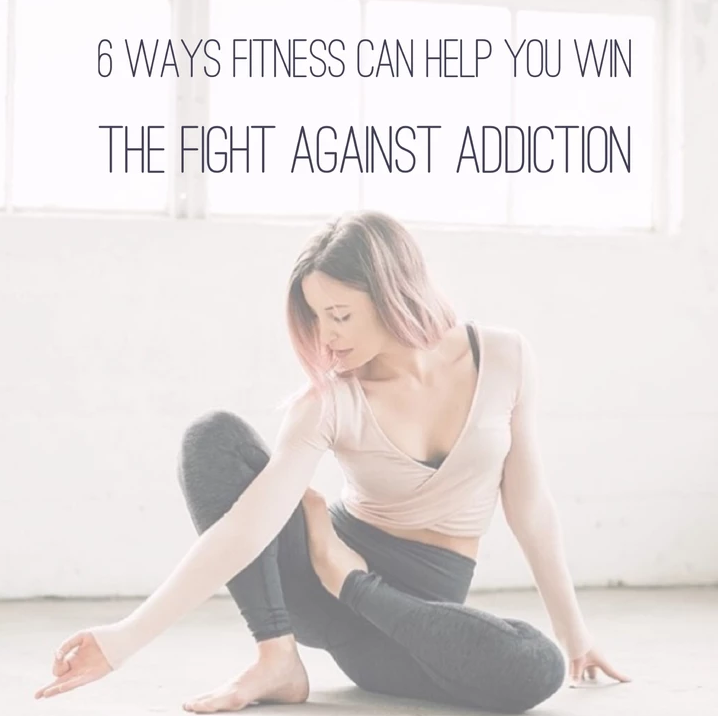Transitioning into an addiction treatment program can be difficult. It takes a great deal of courage and commitment, but it’s a life change you can feel proud of. Committing to coming clean from your addiction is big step in improving your life overall but it can often be difficult to stick to the plan and even more difficult to maintain motivation during moments of weakness or regression. Because recovery can feel like an insurmountable feat, taking on another task may seem like too much BUT building a fitness plan can actually improve your chances of succeeding in rehabilitation programming and formulating a fitness plan is a good way to ensure success. Exercise can help your brain and body stay strong as you strive to break free from addiction. Need a little more convincing? Here are six ways getting in shape can help you get and stay sober:
Fitness Creates a Sense of Control Over Your Body
Addictions have a tendency to take over our lives. The need for a fix likely drove your thoughts AND your actions for some time. And that loss of control is likely to make you feel helpless. Creating a fitness plan and taking action toward improving physical fitness is a healthy, positive way to regain some of that control. Exercise can help you to become aware of the power and control you do have-The power to make positive choices, take time for yourself and to move and improve your physical body. Developing that sense of body/mind awareness and that sense of control can make you feel more confident in your ability to fight an addiction and lead to better overall health outcomes.
Burning Calories Boosts Your Brain Chemistry
Substance abuse AND the recovery process, can take a significant toll on your mental health. Admitting and accepting that you have or struggle with an addiction can decrease feelings of self-worth, self-confidence, self-love and overall mood and working through your issues can be just as difficult. Exercise has many positive effects on your brain, which can help improve mental health. Engaging in exercise can actually cause the brain to produce endorphins-Which are chemicals that relieve pain and induce happiness. In addition, regular physical activity can help to reduce stress and improve your self-esteem.
Exercise Encourages Positive Relationships
Rehabilitation programs will likely encourage you to seek out healthy social connections. Maintaining positive social connections can help to provide the support that is essential during recovery. Physical fitness can help you to connect with positive and healthy people who are dedicated to improving their own wellbeing and physical fitness . Surrounding yourself with others who are invested in their own health can help you to become motivated to do the same. In addition, getting fit provides a platform for increasing or building a connection with others. Having others (who are or can become friends) can help to increase your ability to maintain exercise goals and building/maintaining healthy social connections can be beneficial to recovery and a big boost to your health and wellbeing.
You Can Start Now
Your initial fitness plan doesn’t have to be too involved. In fact, starting with small, SMART steps can make your fitness goals more attainable. For example, start with a few brisk 20-minute walks each week, and then see if you can pick up the pace (increasing intensity (speed and/or length) or frequency). Once you feel good about attaining your first goal, you may want to add in something more like strength training, cycling, interval training, yoga or pilates. Be sure to factor in some time for recovery, like a few stretches and a healthy snack. Incorporating these steps will ensure your workouts have the most impact (for both the mind and body).
Health Goals Give You Something to Focus On
Being in recovery can lead to feelings of boredom or restlessness. In fact, that post-addiction stability can often make life feel monotonous and dull. All that the time, energy and excitement involved in looking for a fix or getting high can seem idle when you’re committed to recovering and idle time and boredom can be two major triggers for relapse. Focusing on fitness goals and getting in shape keeps your mind and body busy. You can spend that newfound “idle” time focusing on a new cardio routine/goal or trying out a yoga practice as having healthy hobbies will help you stick to your recovery goals.
Fitness Can Make Life More Fun
When you’re fit, you feel better and when you feel better, you are more likely to take healthy risks and engage in adventurous activities. Working out will give you more energy to get out and explore the world-Giving you a healthy avenue to experience excitement, thrill and adrenaline rush. Go out for hike, start biking around or sign up for that dance class you always wanted to take. Taking care of your body will give you with the energy and confidence to do more with your life. So allow physical health and fitness to to you to take advantage and start living the life you always wanted.
References and Related Articles:
